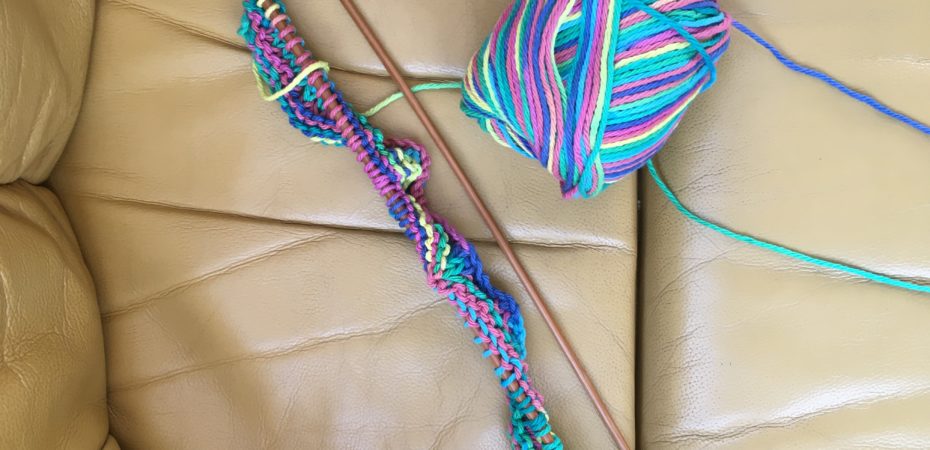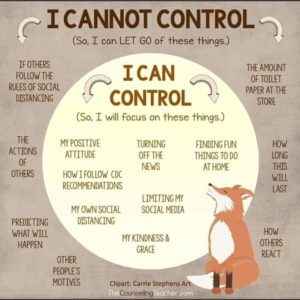(The photo relates to one of my personal resilience strategies…)
The second topic in the new mini-session series from IAD was resilience and wellbeing. As some of you will know, this is a favourite topic of mine and one that has driven a lot of the developments in IAD over the last few years. A reminder of some of the resources that we’ve developed:
- our online, learn-at-your-own pace guides to various development topics
- a guide for new researchers to help people new to Edinburgh get off to a good start
- a set of resilience tips from Edinburgh researchers to help research staff thrive
These developments have grown from earlier work I did on resilience with the Institute of Physics – the guide I wrote after interviewing a diverse group of physicists is freely available online and even if you aren’t a physicist, contains advice which will translate to most situations and disciplines.
The Resilience Toolkit from the IOP
There are many blogs on this site linked to resilience which may also be helpful.
The session we ran last week was an on the hoof attempt to update the advice in the various guides for our new working patterns and constraints. You can watch the session now – I’m aware that these links lead to a hefty download but am being patient about asking for advice from our Collaborate experts at IAD – they’re in demand at the moment and most of us can cope with this minor irritation. If you can’t download the file, I’d suggest you read the Edinburgh and IOP guides as these contain more detailed insights than in the session.
There is also a handout that I’ve used in other sessions: Wellbeing and resilience plan
As I mentioned in the session, this is something to complete on the good days so you have a personalised plan to refer to on the bad days.
I’ve now moved the recording of the session into Media Hopper and think it’s openly available and ready to view. Let me know if I’ve cocked up again!
Resilience and Wellbeing for Researchers online session – March 2020
And the slides, in case it’s easier to follow with them in front of you:
Some headlines from the session
- take your time settling into the new routine and be aware of how unsettling the change is. I reflected on my experience of being stranded in Edinburgh during the 2018 snow chaos and how that left me largely incapable of getting things done. Uncertainty is corrosive to the kind of thinking and working that many researchers have to do – being stressed about lack of productivity will only make it worse.
- stay connected, but choose platforms that make you feel BETTER (so I’m sticking to Twitter and Team chats and staying off Facebook for now)
- be aware of what is making you feel worse (addictions to BBC News came up) and switch off
- try to stay active and get outside – even if you are quarantined, you can still take exercise and get fresh air as long as you keep your distance
I also offered to share some of the better bits of advice I’d noticed in the first few days of remote working:
This blog from JISC: https://www.jisc.ac.uk/blog/dont-forget-the-human-side-of-homeworking-11-mar-2020
Another from JISC on getting yourself set up for remote working – doing all of these things IS WORK so don’t beat yourself up if you are busy doing this instead of other things. https://www.jisc.ac.uk/guides/ensuring-continuity-of-learning-during-enforced-absence/effective-remote-working
This visual summary tweeted by the Director of Edinburgh’s Student Disability Service:
Really useful graphic from https://t.co/Fycw3J8NjF , lets all let go of the things we can’t control. Stay well everyone both physically and mentally. @UoEdWellbeing pic.twitter.com/b52XccecVA
— paddy corscadden (@Paddy_c_ahp) March 21, 2020
As I stressed in the online session, when I run these workshops I start with a clear disclaimer as I’m not clinically trained in mental health. I’m always pushing people to find expertise if they need it, so the final link is to the Royal College of Occupational Therapists: https://www.rcot.co.uk/staying-well-when-social-distancing
I’m taking requests for topics of future sessions so please let me know through email (if you are UoE research staff or student) or twitter (happy to support a wider community in these trying times) and I’ll do my best.
Sara x
This training was developed to support our research staff including our Train@Ed cohort of fellows. Train@Ed has received funding from the European Union’s Horizon 2020 research and innovation programme under the Marie Skłodowska‐Curie grant agreement No. 801215



